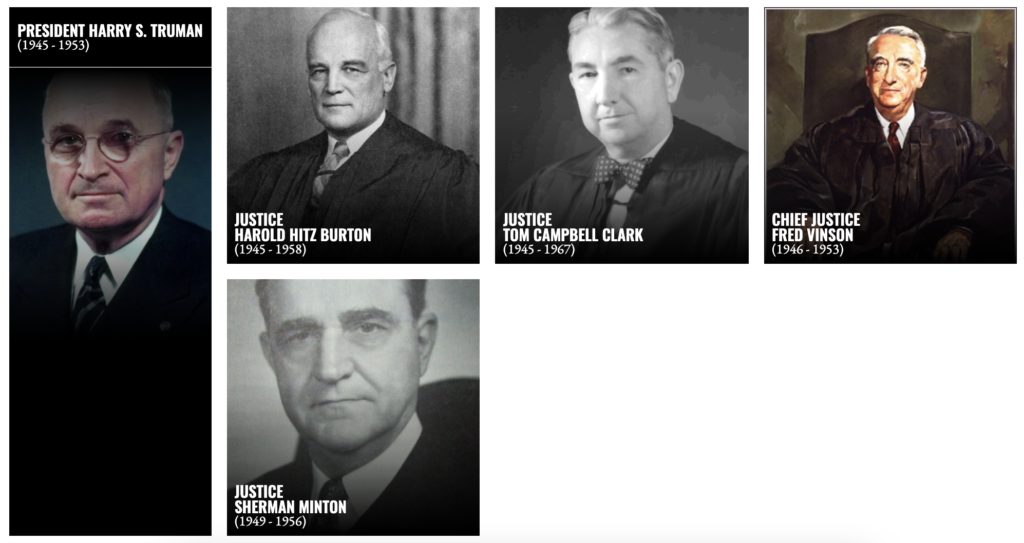The Volokh Conspiracy
Mostly law professors | Sometimes contrarian | Often libertarian | Always independent
Today in Supreme Court History: May 8, 1884
5/8/1884: President Harry S. Truman's birthday. He would make four appointments to the Supreme Court: Chief Justice Vinson, and Justices Burton, Clark, and Minton.

Editor's Note: We invite comments and request that they be civil and on-topic. We do not moderate or assume any responsibility for comments, which are owned by the readers who post them. Comments do not represent the views of Reason.com or Reason Foundation. We reserve the right to delete any comment for any reason at any time. Comments may only be edited within 5 minutes of posting. Report abuses.
Please to post comments


One out of four isn't bad.
Well, Vinson did die quickly.
Burton and Minton had their moments but were rather forgettable.
OTOH, so are many of us.
President Lyndon Johnson may have appointed Ramsey Clark as Attorney General in order to prompt his father, Justice Tom Clark, to retire from SCOTUS in order to avoid conflicts of interest. This created a vacancy that was filled by Thurgood Marshall in 1967.
Justice Tom Clark wrote a well-cited law article on abortion and later (while he still filled in as a lower court judge) wrote a short article supporting liberalization of marijuana laws, in part suggesting personal possession was protected by the right to privacy.
I wonder what Truman thought about that (if he was still around and took notice)?
Okay, when did this get posted?
Customs Act Case (Grand Bench, decided May 8, 1963): Court must establish owner of property before ordering criminal substitute asset forfeiture under the Constitution (see also April 28)
Special Kokoku-Appeal to Modification of Disposition on Sharing of Living Expenses Case (Third Petty Bench, May 8, 2008): Failure to serve notice of appeal (and the resulting ex parte modification of spousal support payment order against appellee) does not implicate right to access to courts, since the proceeding is not judicial in nature; dismisses due-process claim because it alleges failure to follow the statute (which it lacks appellate jurisdiction over)